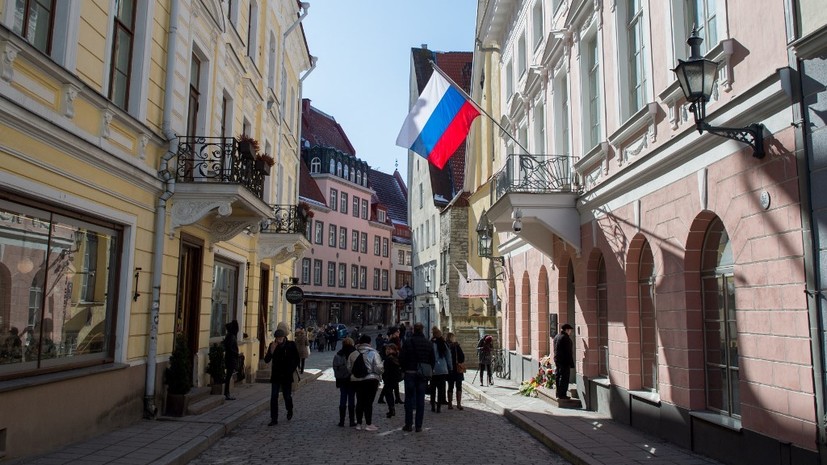There are no grounds for restricting the right of Russians to enter the EU territory - this is how the State Duma commented on the words of former Estonian President Toomas Hendrik Ilves, who called for a temporary ban on the issuance of visas to EU countries for Russians in the interests of "European security."
As noted by Anton Morozov, a member of the State Duma Committee on International Affairs, Ilves' statement contradicts the right to freedom of movement.
“If Estonia wants to be a full-fledged member of the European Union and, accordingly, the Schengen area, then they must respect universally recognized human rights, which are protected by all international organizations, including the United Nations.
In this case, there is no reason to restrict the right of Russian citizens to enter the European Union if they do not have any judicial restrictions, are not involved in crime, etc., "the deputy said in an interview with RT.
The former President of Estonia previously wrote on Twitter that the issuance of EU visas to Russians should be stopped for reasons of "European security."
“Perhaps we need to take a 'time-out' for all, literally all, visits from Russia ... We need to freeze all visas, except for trips for family reasons.
Europe's security is at stake.
Enough, ”the politician wrote.
The State Duma drew attention to the fact that anti-Russian sentiments currently prevail in Eastern Europe and the Baltic countries.
According to Morozov, Ilves' statements may indicate a desire to attract attention for the sake of continuing his career.
“Many politicians, especially former ones, are pedaling this topic.
Secondly, this person, apparently, hopes to get some position again either in Estonia or in an international organization and thus tries to flirt with those who profess and promote this anti-Russian hysteria, ”the deputy concluded.
In addition, Aleksey Chepa, Deputy Chairman of the State Duma Committee on International Affairs, noted that many countries are counting on tourists from Russia.
The deputy cited Turkey as an example, with which Russia had previously limited air traffic.
Against this background, representatives of the Turkish travel industry talked about potential losses due to the cancellation of Russian trips.
“Russians are some of the best tourists.
And that's for decades!
Everyone is happy, fighting for the Russian tourist.
Europe is interested in business issues, ”Chepa said in an interview with REN TV.
Expert of the International Institute for Humanitarian Political Research Vladimir Bruter called the words of the ex-President of Estonia not an appeal, but a provocation.
According to the expert, the activities of some politicians are reduced to this.
“In reality, after they release another such provocation, the leadership of the main countries of the European Union, the main countries of the West, says:“ We are completely different.
This is from himself, "Bruter said in a comment to RT.
Let us add that attacks on Russia are often heard from the Estonian side.
In February, the Ministry of Defense of the Baltic country said that they consider Russia a likely "aggressor".
In particular, as the head of the Estonian defense department Kalle Laanet put it, it is the policy of Russia that allegedly poses the greatest threat to the security of the republic.
He said that after the events in Georgia in 2008, Estonia decided that a mercenary army was not suitable for the country.
According to him, before that in Europe they called Russia "a great ally" and said that there would be no war.
According to Laanet, "in reality, everything turned out differently."
Also on russian.rt.com Strong protest: Russia expels an employee of the Estonian embassy in response to Tallinn's actions
In addition, he suggested that Estonia could allegedly be attacked by the Russian Federation.
In his opinion, Moscow is ready to unleash a war due to "socio-economic" problems within Russia.
In the same month, the Estonian Foreign Intelligence Department released a report claiming that Moscow continues to pose a potential military threat to the republic.
Among other things, in February Tallinn declared a Russian diplomat who was involved in cultural and educational issues in the republic persona non grata.
In response, Moscow expelled an employee of the Estonian embassy.

